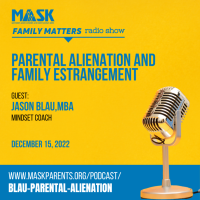parental alienation & family estrangement Coaching
Tuvia Blau Coaching is dedicated to shedding light on the complex and often painful issues of parental alienation and family estrangement. We recognize that these topics can be emotionally charged and deeply personal, and we aim to provide a safe and informative space for those seeking understanding, support, and solutions.
What is Parental Alienation?
Parental alienation is a distressing family dynamic that occurs when one parent deliberately and systematically manipulates a child to turn against the other parent. This can involve negative influence, false accusations, or emotional coercion, leading to a breakdown in the child’s relationship with the targeted parent. Parental alienation can be incredibly harmful to children, parents, and extended family members, leaving long-lasting emotional scars and strained relationships.
Third-Party Involvement
In this case, a third party, such as a therapist, teacher, rabbi, or even a spouse of an adult-aged child, plays a central role in driving the alienation process. Their motivations can vary, but they often manipulate the adult-child’s emotions for their own personal gain, control, or influence.
Motivations of the Third Party
The motivations behind the third party’s actions can include financial gain, emotional control over the adult-aged child, resentment toward the alienated parent, or a desire to replace the alienated parent’s role in the adult-child’s life. These motivations may not always be apparent or rational.
Techniques and Strategies
Emotional Distance
Physical Distance
In some cases, family members physically move away from each other, either to escape conflict or to seek independence. This physical separation can exacerbate emotional estrangement or, in some cases, lead to reconciliation over time.
Communication Breakdown
Understanding Family Estrangement
Family estrangement refers to the deliberate distancing or emotional detachment between family members, resulting in a lack of contact or communication. It can happen for a variety of reasons, including unresolved conflicts, differing values, religious beliefs, or misunderstandings. Estrangement can be extremely painful, leaving individuals feeling isolated, hurt, and struggling with a sense of loss. This can take many forms and can be temporary or longer-lasting. Family estrangement can occur between parents and children, between siblings, or between extended family members.
You’re in the right place if…
- You are a parent who believes your child is being manipulated or turned against you by the other parent, or third party.
- Your adult child has suddenly and inexplicably become distant or hostile towards you.
- You feel isolated and emotionally distressed due to a strained relationship with your adult child.
- Your adult child refuses to spend time with you or engage in communication.
- You're struggling to communicate effectively with your adult child.
- You're unsure how to address the situation with your adult-aged child in a constructive manner.
- You've experienced a sudden loss of contact with your adult child for reasons you don't understand.
- You're grappling with feelings of guilt, shame, embarrassment, anger and/or heartache.
- You want to rebuild a healthy and supportive relationship with your estranged family member.
- You're seeking guidance on establishing boundaries with toxic family members.
- You're a sibling caught in the crossfire of parental alienation between your parents and want to mend relationships.
- You're experiencing stress or anxiety due to unresolved family issues.
- You're committed to finding ways to promote reconciliation, understanding, and healing within your family.
Ready to co-create a healthy relationship?
PHASE 1
Self-Preparation
This phase is crucial as it lays the foundation for the entire reconciliation process. It involves:
-
Self-reflection
Take time to understand your own emotions, past actions, and any potential contributions to the estrangement. Self-awareness is key to making meaningful changes.
-
Tools for perspective shift
Learn techniques to change your mindset and view the estranged family member with empathy and understanding. This may include practicing forgiveness and letting go of resentments.
-
Overcoming fear
Address any fears or anxieties related to the reconciliation process. Fear can hinder progress, so coaching can be beneficial in addressing these emotions.
-
Validate their perspective
Recognize and acknowledge their feelings and experiences, even if you don't agree with them. This validates their emotions and demonstrates empathy.
-
Ask the right questions
Create a safe space for dialogue by asking questions that encourage open and honest communication. Avoid blame or accusations and instead seek to understand their point of view
-
Empathetic listening
Actively listen without judgment to what your family member is saying. Understand their feelings and concerns, even if they are difficult to hear.
PHASE 2
Building the Bridge
This phase focuses on gathering information and creating a bridge of communication with your estranged family member. Key elements include:
PHASE 3
Implementation and Consistency
-
Decoding messages
Learn to interpret your adult child's communication style and emotional cues. This can help you respond appropriately and avoid misunderstandings.
-
Boundaries
Establish healthy boundaries to ensure both parties feel safe and respected within the relationship.
-
Building trust
Demonstrate your commitment to change and rebuilding the relationship through your actions, consistency, and honesty.

One-on-One Coaching
Gain personalized guidance and support tailored to your unique situation, helping you navigate the complex emotions and challenges associated with estrangement. Your coach will provide insights, coping strategies, and communication techniques to improve your relationship with estranged family members, promoting healing and reconciliation. With their expertise, you can gain clarity, develop a customized action plan, and receive emotional support to work towards a healthier, more fulfilling family dynamic.
Work together in a small group with others who understand your struggles, fostering a sense of belonging and empathy. Group sessions allow participants to gain diverse perspectives, share experiences, and learn from one another’s successes and challenges. Additionally, the coach can offer guidance, strategies, and tools specific to family dynamics, promoting emotional healing and effective reconciliation efforts within the context of a safe and understanding environment.

Podcasts
Parental Alienation and Family Estrangement

MASK Family Matters radio show
* Interview with Tuvia (Jason) Blau begins at 54:42 *




